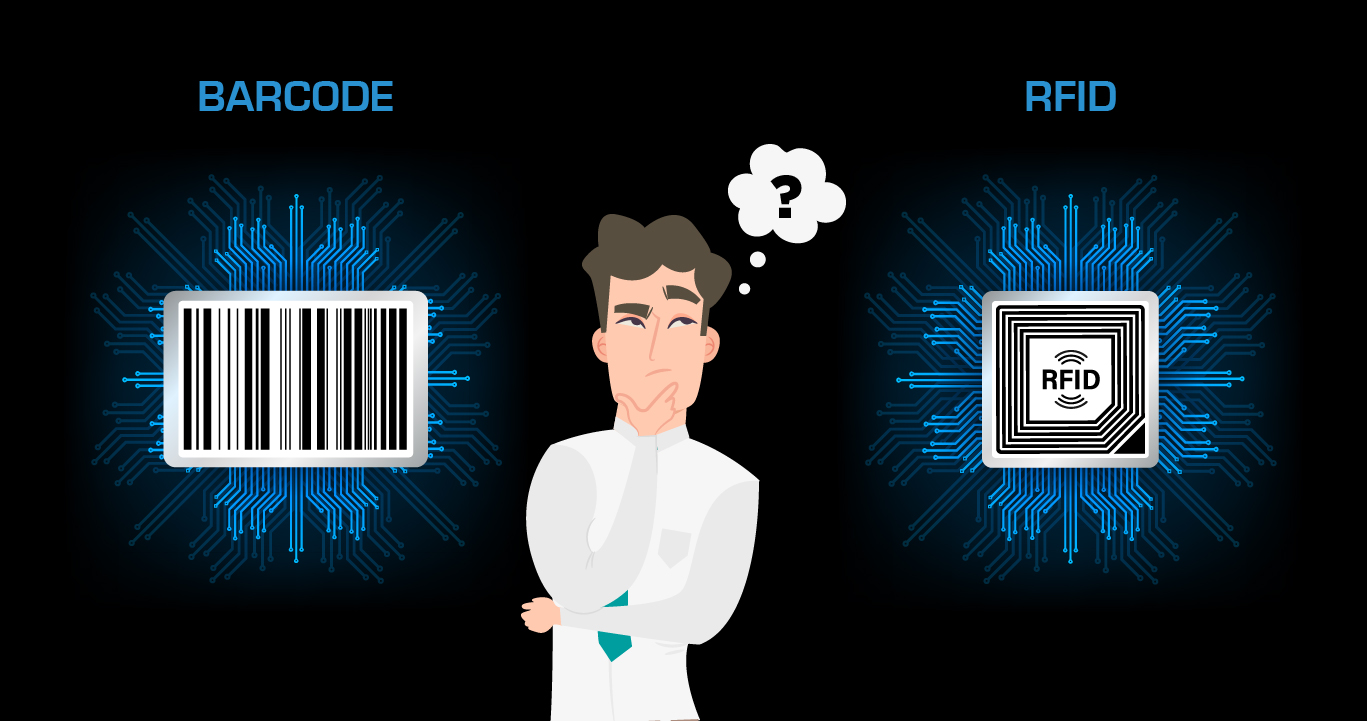Barcodes and RFIDs (Radio Frequency Identification) are two of the most important technologies used for automatic data capturing in traceability. Two of the key differences in how these technologies work are:
- RFIDs make use of radio waves to transfer data without contact, while Barcodes transfer data by reading their black and white stripes using a beam of light
- Where barcodes can only read information, RFIDs perform both reading and writing
As a result of these differences, here is a look at different attributes of each technology, and the benefits and disadvantages of each option.
Data Storage
When it comes to data storage, RFIDs can store much larger amounts of data when compared to linear barcodes. Information regarding the location, origin and journey of the product can be found on the RFID tags which can also be read remotely, unlike barcodes. Therefore, if the above-mentioned data is crucial for a facility, then RFIDs should be favoured.
Cost
RFIDs prove to be more costly than barcodes in most cases. The technology and infrastructure required for RFIDs can often result in far higher costs and therefore should only be used for higher-value goods. When investing in RFIDs for a facility, proper ROI analysis should be done beforehand.
Tracking Accuracy
In general, RFIDs tend to be much more effective than barcodes when it comes to data accuracy. This is because RFID readers, when placed on doorways and portals, take note of all the segments of the inventory as it enters or leaves a location. For barcodes, on the other hand, data can be easily compromised if an employee physically removes the item before it has been scanned. Therefore, if your business deals with large inventories, it is advisable to go for RFIDs because otherwise, it can take a while before you notice any discrepancy.

Data Security
Barcodes tend to be a much more secure way of collecting data and avoiding scammers as compared to RFIDs. Portable RFID readers when combined with long-range tags run the risk of exposing sensitive information to unauthorised people or parties. Therefore, additional checks are required with RFIDs to ensure that scammers have no access to the facility’s information. This problem does not arise with barcodes and therefore, if you do not plan on investing in the above security features, it is advisable to go with barcodes.
Scanning Flexibility
On the one hand, where barcodes require line of sight for scanning, RFIDs demand no such proximity. This means that the tags can be read from any direction, irrespective of their orientation. Additionally, RFID scanners read multiple tags at the same time while barcodes work in a linear fashion, reading one tag at a time. So if your facility requires time-sensitive data that needs to be read in bulk, then barcodes are not for you.
Interference
External interference is more of a risk in the case of RFIDs than barcodes. Since RFIDs use radio signals for their functioning, different radio frequencies can cause a problem with the collection and processing of data. This is a risk that must be looked into, before investing in RFIDs. No such risk is present in barcodes since they are not dependent on radio signals.
Visibility
When it comes to the visibility of products on the production line, RFIDs are much better than barcodes. Using RFIDs, you can immediately locate the product and track its status. This kind of tracking allows real-time operational data that stretches from the time a product enters a facility to the time it leaves it and even beyond that! RFIDs automate the process of identification of products across processes like packing, storing, shipping, etc. which are all manual in the case of barcodes. That is a major reason why RFIDs prove to be much more helpful in the cases of call-backs or other issues.
With multiple factors at play, the choice of traceability technology between RFID and barcode comes down to the specific requirements at your manufacturing facility, and the set of unique conditions and constraints that you need to work with.
At MELSS, with our decades of experience in implementing traceability solutions at manufacturing facilities, we have developed expertise in both of these technologies. We are well equipped to help you make an informed decision on which technology to adopt, and to help you implement your traceability system at your facility as well. Talk to us today!
Source: https://new.siemens.com/






